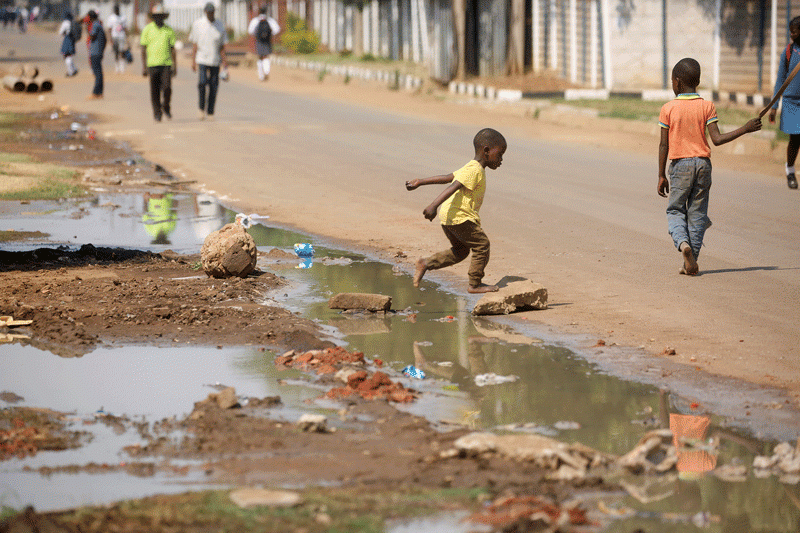
Zimbabwe is battling a resurgence in cholera cases that has exposed the government's half-hearted response to an outbreak that began last year.
The government raised the alarm last week after at least 100 suspected deaths and more than 5 000 possible cases were recorded throughout the country since late last year.
Authorities last week imposed gathering restrictions to stop the spread of the disease, including limiting numbers at funerals and stopping social gatherings in affected areas.
Attendance at funerals has been restricted to 50 people while people are advised against shaking hands.
The Health and Child Care ministry also advised people against attending open markets and to avoid some social gatherings and outdoor church camps where there is no adequate sanitary infrastructure.
Manicaland’s Buhera district has been identified as the epicentre of the latest outbreak, but the Health and Child Care ministry said the cases have since spread to 41 districts across the country.
Cholera is a water-borne disease that can spread rapidly in areas with poor sanitation and is caused by the ingestion of contaminated water or food.
Zimbabwe is bearing the brunt of infrastructure decay and lack of investment in clean water sources, especially in major cities such as Bulawayo and Harare.
- Hesitancy slows Covid vaccination for children
- Hesitancy slows Covid vaccination for children
- Multisectoral COVID-19 messaging campaign improving prevention and vaccine uptake in Zimbabwe
- Cultivate demand for Covid-19 vaccines
Keep Reading
Poor sanitation has spawned deadly outbreaks of water-borne diseases such as cholera, typhoid and dysentery. The worst cholera outbreak to date killed more than 4 000 people in 2009.
It is a tragedy that the country is still recording a high number of deaths from the mediaeval disease 14 years later.
The government should stop paying lip service to the issue of water and sanitation infrastructure in urban areas to stop the needless deaths.
Some suburbs can go for months without tap water, forcing residents to rely on unsafe wells, boreholes and rivers.
In some places raw sewage flows into people’s houses and garbage often goes uncollected for several months.
It is mind boggling that the government continues to be a bystander as the cholera outbreak intensifies.
It is against this background that we urge the authorities to be proactive in halting the spread of cholera by raising awareness levels and fixing infrastructure in urban areas.
Zimbabwe’s health sector is severely constrained and if the outbreak is not nipped in the bud, health centres will not be able to cope and more people will die needlessly.
There is also need for a long term plan that addresses issues of infrastructure to prevent the recurring outbreaks of water-borne diseases.







